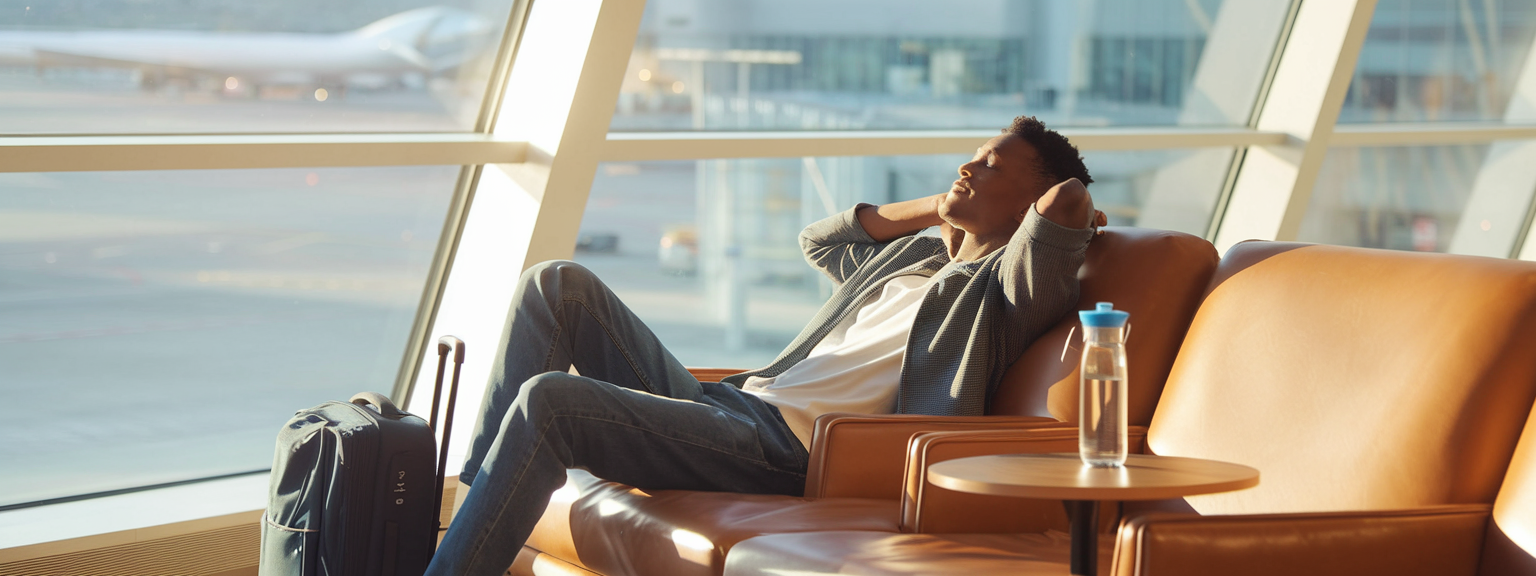Effective Tips for Overcoming Jet Lag and Enjoying Your Travels
Traveling across multiple time zones can be exhilarating, but it often comes with the exhausting side effect of jet lag.
If you’ve ever experienced the fatigue, disrupted sleep, and grogginess after a long-haul flight, you’ve likely searched for the
best tips for overcoming jet lag. This guide will provide actionable advice on jet lag remedies, sleep
schedule adjustments, and natural ways to reset your circadian rhythm so you can enjoy your trip to the fullest.
📍Must-See Attractions
📝 Step-By-Step Guide: Overcoming Jet Lag Successfully
Think of overcoming jet lag as a traveler’s attraction in itself—something you must “visit” to unlock your full energy levels. Instead of physical landmarks, here the attractions are practical and actionable steps for recovery. Begin by preparing in advance:
adjust your sleep schedule by shifting it closer to your destination’s time zone at least 2–3 days before departure. During the flight, stay hydrated and avoid heavy alcohol or caffeine, which can disturb your body’s ability to adapt.
Light Exposure and Movement
Strategically placing yourself in natural light helps reset your circadian rhythm. For eastbound travel, get morning light; for westbound travel, soak up late afternoon sunshine. Pair this with light exercise, such as walking or stretching after your flight, to re-energize your muscles and boost blood circulation.
Balancing Naps and Sleep
Short naps (20–30 minutes) can be restorative without sabotaging nighttime rest. Avoid long naps that trick your body into staying on “home time.” Aim for a full night’s sleep aligned with local hours as soon as possible.
🎭 Local Culture & Experiences
Syncing with Local Meal Times
Food is more than cultural enrichment—it’s a tool to reset your internal body clock.
Embrace local dining times even if you’re not entirely hungry, and opt for lighter, nutrient-dense meals rich in fruits, vegetables, and whole grains to aid travel fatigue recovery.
Cultural Immersion as Therapy
Participating in outdoor cultural experiences like market walks, festivals, or casual social activities exposes you to local rhythms and natural light, accelerating your adaptation. A simple morning walk through a local market can help anchor your senses, aid digestion, and create the mental shift needed for new time zones.
🔑 Hidden Gems & Insider Tips
Airline and Accommodation Hacks
Flight arrival times matter. Whenever possible, choose flights that land in the morning, giving you natural daylight exposure to help reset your clock. Once you arrive, request early check-in at your hotel or use available wellness amenities like spas or gyms—these small adjustments can make a big difference in how to beat jet lag.
Mindfulness and Stress Management
Stress makes recovery harder. Incorporating mindful breathing exercises, quick meditation sessions, or travel-friendly yoga can dramatically improve your mood and sleep adjustment. Pair mindfulness with breathwork before bedtime for deeper rest.
🗓️ Sample Itinerary or Day Plan
Day 1 Recovery Schedule
A structured day plan can be your best friend for fast recovery. Here’s a sample approach to align with your new time zone:
- 8:00 AM: Exposure to sunlight within the first hour after landing.
- 9:00 AM: Enjoy a light, protein-rich breakfast and hydrate fully.
- 11:00 AM: Take a brief 20-minute nap if needed.
- Afternoon: Engage in low-intensity exploration or a leisure activity.
- 7:00 PM: Eat dinner at local time with balanced, light fare.
- 10:00 PM: Prepare for bed with a warm shower and relaxation techniques.
Estimated Costs & Wellness Add-ons
Simple wellness expenses include purchasing bottled water or using refill stations ($2–$5), enjoying light local meals ($10–$20), or investing in relaxation aids like meditation apps ($2–$10/month).
💡 Travel Tips Specific to the Destination
Best Tips for Overcoming Jet Lag and Regaining Energy
Packing a sleep mask, noise-canceling headphones, and a reusable water bottle ensures your environment supports better rest. When booking flights, aim for night travel if feasible to align sleep naturally with your destination.
Helpful Apps for Overcoming Jet Lag and Improving Sleep
Leverage technology to make adaptation easier. Popular apps can guide you in adjusting sleep schedules before departure. Meditation apps, hydration reminders, and sunrise alarms can help you stay on track with healthy travel habits.
Safety Considerations
Avoid over-reliance on sleeping pills, especially if traveling alone. Instead, explore natural options like melatonin supplements, but use them judiciously and always consult with a healthcare professional before starting.
Best Times for Flight Planning
Plan to arrive in the daytime, giving you exposure to outdoor light. For European travel from the U.S., red-eye flights arriving early morning can speed up adjustment, while westbound returns typically feel easier on the body.
“`


![[Houston International Food Platter] [Vibrant platter of global dishes showcasing Houston international food]](https://roamwriters.com/wp-content/uploads/2025/11/houston-international-food-bold-flavors.png)
![[Cultural Etiquette International Meeting] [Colleagues exchanging greetings in an international office demonstrating Cultural Etiquette]](https://roamwriters.com/wp-content/uploads/2025/11/cultural-etiquette-international-meeting.png)

![[Travel Emergencies Response] [Traveler checking documents and phone for help after travel emergencies]](https://roamwriters.com/wp-content/uploads/2025/11/travel-emergencies-preparation-guide.png)